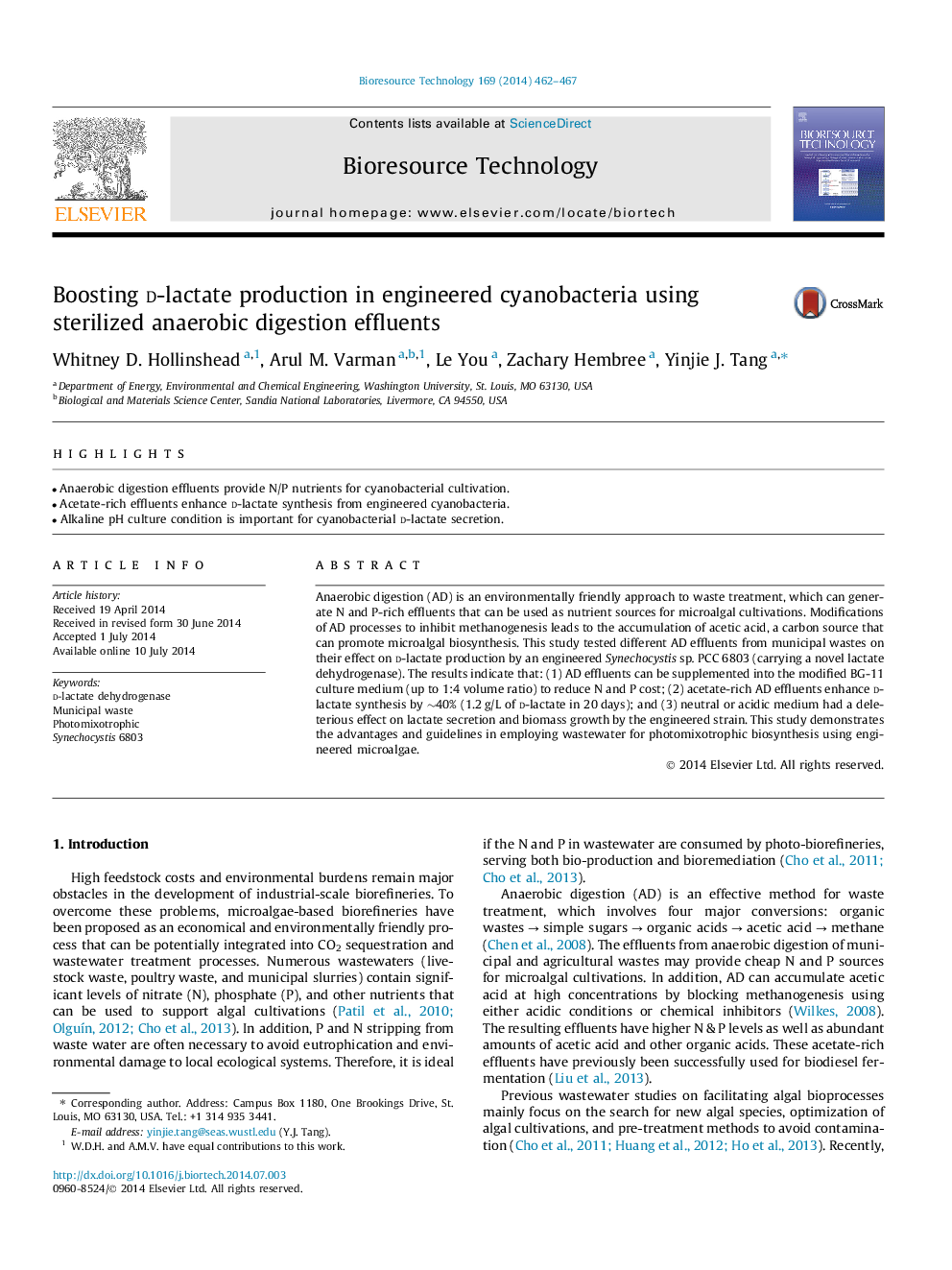| Article ID | Journal | Published Year | Pages | File Type |
|---|---|---|---|---|
| 680679 | Bioresource Technology | 2014 | 6 Pages |
•Anaerobic digestion effluents provide N/P nutrients for cyanobacterial cultivation.•Acetate-rich effluents enhance d-lactate synthesis from engineered cyanobacteria.•Alkaline pH culture condition is important for cyanobacterial d-lactate secretion.
Anaerobic digestion (AD) is an environmentally friendly approach to waste treatment, which can generate N and P-rich effluents that can be used as nutrient sources for microalgal cultivations. Modifications of AD processes to inhibit methanogenesis leads to the accumulation of acetic acid, a carbon source that can promote microalgal biosynthesis. This study tested different AD effluents from municipal wastes on their effect on d-lactate production by an engineered Synechocystis sp. PCC 6803 (carrying a novel lactate dehydrogenase). The results indicate that: (1) AD effluents can be supplemented into the modified BG-11 culture medium (up to 1:4 volume ratio) to reduce N and P cost; (2) acetate-rich AD effluents enhance d-lactate synthesis by ∼40% (1.2 g/L of d-lactate in 20 days); and (3) neutral or acidic medium had a deleterious effect on lactate secretion and biomass growth by the engineered strain. This study demonstrates the advantages and guidelines in employing wastewater for photomixotrophic biosynthesis using engineered microalgae.
